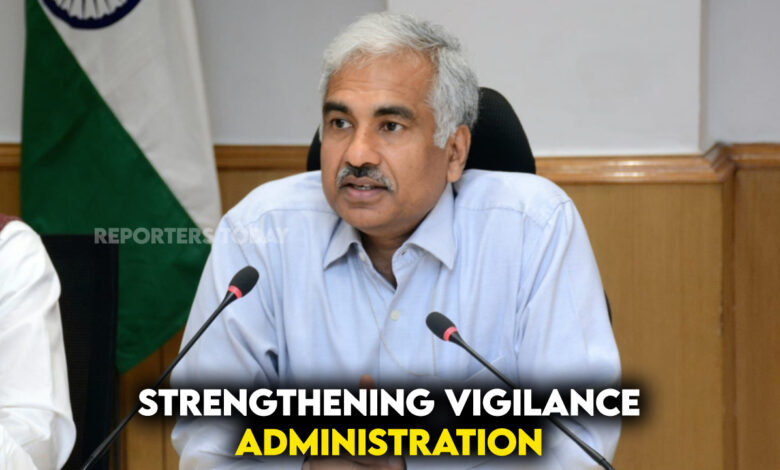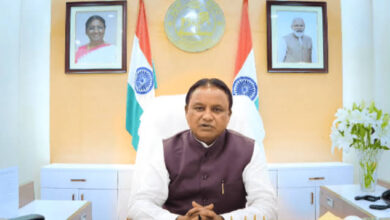Chief Secretary stressed on Strengthening Vigilance Administration and Adoption of “Preventive Vigilance”

Chief Secretary Shri Manoj Ahuja, IAS has emphasized the need for Strengthening Vigilance Administration with focus on Adoption of “Preventive Vigilance”. In a letter addressed to all Additional Chief Secretaries,all Principal Secretaries, DG. Vigilance Directorate,Commissioner-cum-Secretaries of all departments, RDCs and Collectors, the Chief Secretary has mentioned that, the State Government is committed to clean, transparent, and citizen-centric governance. Recent cases of corruption detected by the Vigilance Department, highlight the urgent need for a proactive and sustained focus on preventive vigilance. Mere punitive action is not sufficient; root causes of corruption must be systematically eliminated through administrative, legal, social, economic, and educative measures.
As emphasized by the Santhanam Committee, Departments themselves must take the lead in identifying vulnerable areas and addressing risks before they materialize. Preventive vigilance addresses issues such as excessive regulation, discretionary powers, and monopolies in service delivery, weak grievance redressal, poor detection systems, and low public awareness.
Broad focus areas include:Procurement & Contract Management, Human Resource Management, Service Delivery, Monitoring of Public Works, reform in Ease of Doing Business through Jan Vishwas Bill etc.
Adoption of e-procurement, e-tendering, and third- party certification reduces scope for discretion and ensures transparency in Procurement & Contract Management. For example, departments using end-to-end online tendering have seen significant decline in complaints regarding favoritism. The implementation of online transfer policies and the rotation of staff in sensitive posts would discourage rent-seeking behaviour and promote transparency in Human Resource Management.Some departments have already introduced fair and transparent online transfer systems that can be replicated. Simplification of rules and use of digital platforms under the ORTPS Act, 2012 have helped citizens’ access entitlements without middlemen. Initiatives such as AmaShasan allow citizens to directly provide feedback on services, thereby increasing accountability. Monitoring of Public Works tools like the WAMIS and Work Pass Book provide citizens with real-time information on physical and financial progress of projects in their area, reducing chances of manipulation. Ease of Doing Business and Jan Vishwas Bill reforms in business regulations and decriminalization of minor violations reduce excessive discretion and opportunities for corruption.
In this context, all heads of departments and Collectors have been directed to take the following immediate steps to check corruption at different level:
1. Constitute an Internal Vigilance Committee to identify sensitive areas and prepare short- and long-term action plans.
2. Adopt and scale up technology-driven reforms such as EoDB, WAMIS, e-tendering, e-procurement, Work Passbook, DBT for funds transfer and online HR management systems.
3. Enforce transparent HR practices including staff rotation, fair and transparent online transfers, and exclusion of officials of doubtful integrity from sensitive roles.
4. Empower citizens by displaying service timelines under ORTPS Act in offices, monitoring compliance through dashboards, and actively using feedback systems.
5. Institutionalize a culture of zero tolerance towards corruption by periodic review, open discussions among senior officers, and structured monitoring of feedback.
The Chief Secretary has directed that these instructions must be disseminated among all officials for compliance. He has emphasised that a strong preventive vigilance framework will enable realization of a truly responsive and people- oriented Government.





